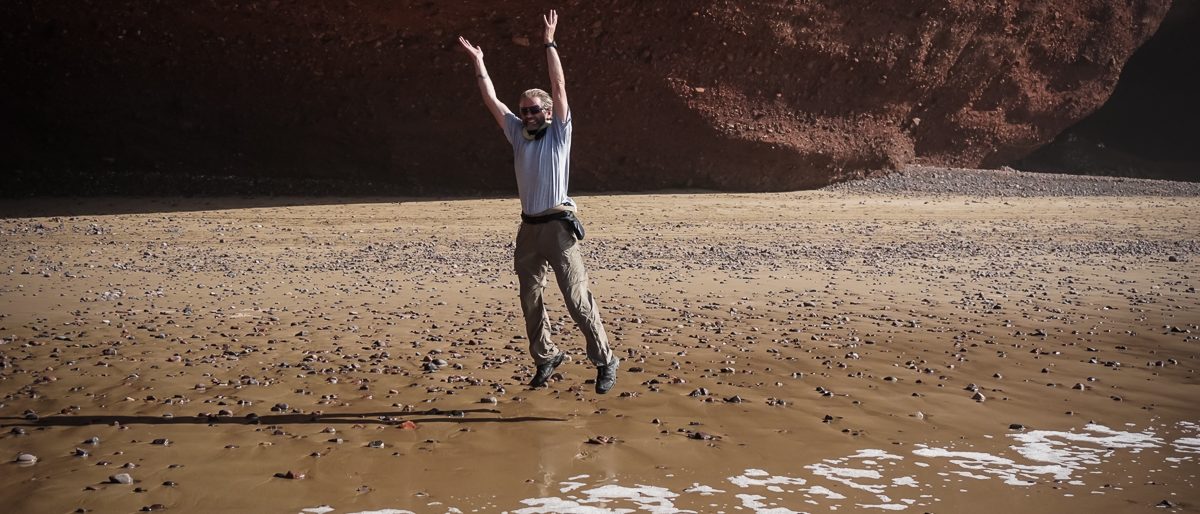always pack a spare
You’re on a road. And you’ve been on it your whole life: it stretches ahead, and behind. Sometimes it’s the road home, sometimes away. It can be a long and winding road, or bumpy as hell and shred your tyres as you head into an extreme desert where magic becomes real. If you’re lucky and choose to point yourself in that direction, you’ll take a turn off to a strange and wild place where colours explode and people come alive in new ways. That is, if you’re fortunate enough to be able to set off in that direction. (…) Now, the road stretches ahead into new territory. What lies behind is the familiar: ahead, uncharted – and the world on either side of the road is a changing landscape. You could even say it’s an unfolding vista that’s part adversity, part challenge. But if there’s one thing we know, it’s that adversity brings out the best in us, and that we eat challenges for breakfast. Wherever you are, whatever you’re doing, may the road rise to meet you.
And always, always – always – pack a spare.
It is am emotional rather than a rational impulse that has always led men to abandon civilisation and seek a simpler life, a life in harmony with ’nature‘, unhampered with possessions, free from the grinding bonds of technology, sinless, promiscuous, anarchic, and sometimes vegetarian.
Bruce Chatwin (‚The nomadic alternative‘)
Und, wie Bruce Chatwin in seinem berühmten Essay „It’s a nomad nomad world“ schrieb:
In one of his gloomier moments Pascal said that all man’s unhappiness stemmed from a single cause, his inability to remain quietly in a room. ‚Notre nature,‘ he wrote, ‚est dans le mouvement… La seule chose qui nous console de nos misères est le divertissement.‘ Diversion. Distraction. Fantasy. Change of fashion, food, love and landscape. We need them as the air we breathe. Without change our brains and bodies rot. The man qho sits quietly in a shuttered room is likely to be mad, tortured by hallucinations and introspection.
Some American brain specialists took encephalograph readings of travellers. They found that changes of scenery and awareness of the passage of seasons through the year stimulated the rhythms of the brain, oontributing to a sense of well-being and an active purpose in life. Monotonous surroundings and tedious regular activities wove patterns which produced fatigue, nervous disorders, apathy, self-disgust and violent reactions.
Hardly surprising, then, that a generation cushioned from the cold by central heating, from the heat by air-conditioning, carted in aseptic transports from one identical house or hotel to another, should feel the need for journeys of mind or body, for pep pills or tranquillisers, or for the cathartic journeys of sex, music and dance. We spend far too much time in shuttered rooms.
(…)
‚He who does not travel does not know the value of men,‘ said Ib’n Battuta, the indefatigable Arab wanderer who strolled from Tangier to China and back for the sake of it. But travel does not merely broaden the mind. It makes the mind.
Abermals Bruce Chatwin (Der Traum des Ruhelosen):
Reisen muss ein Abenteuer sein. “Worauf es ankommt”, schrieb Robert Louis Stevenson in Reise mit dem Esel durch die Cevennen, “ist in Bewegung zu sein, die Notwendigkeiten und die Hindernisse unserer Existenz unmittelbarer zu spüren, dieses bequeme Federbett der Zivilisation zu verlassen und festzustellen, dass der Boden unter den Füßen aus Granit besteht und mit scharfen Kieseln bestreut ist.” Die Stolpersteine sind lebensnotwendig. Sie halten die Adrenalinpumpe in Gang.
Henry David Thoreau:
Es ist ein verhängnisvoller Fehler, zu meinen, daß man mit dem Geist streben und den Körper dabei in Luxus und Trägheit verkommen lassen kann. … Die ganze Pflicht eines Menschen kann in einer Zeile ausgedrückt werden: Schaffe dir einen vollkommenen Leib.
Wilhelm Busch:
Eins, zwei, drei im Sauseschritt,
läuft die Zeit, – wir laufen mit.
Schaffen, schuften, werden älter,
träger, müder und auch kälter.
Bis auf einmal man erkennt,
dass das Leben geht zu End.
Viel zu spät begreifen viele,
die versäumten Lebensziele:
Freude, Schönheit der Natur,
Gesundheit, Reisen und Kultur.
Darum Mensch – sei zeitig weise:
Höchste Zeit ist’s! Reise, reise!



